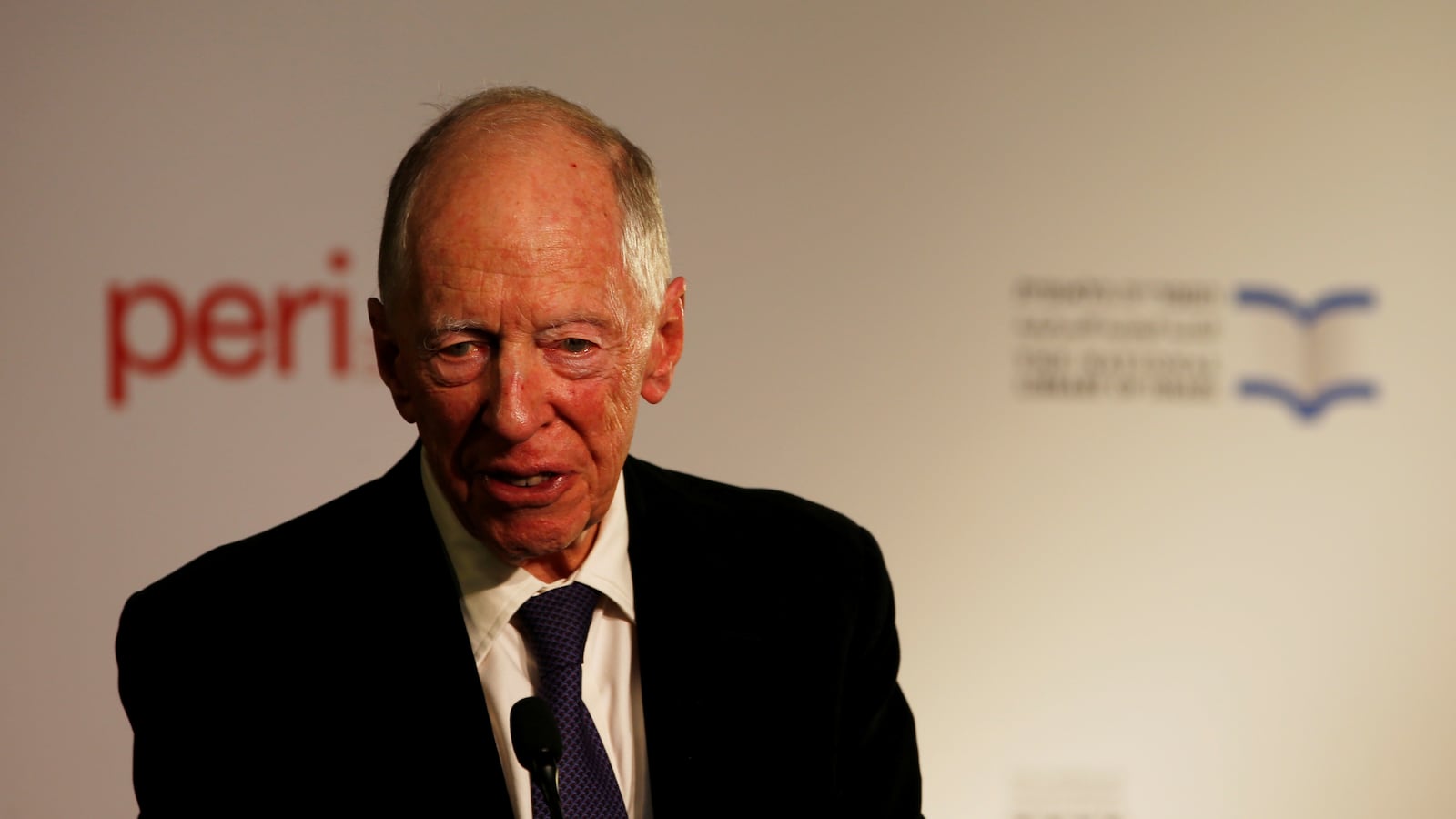Jacob Rothschild, the British financier and philanthropist who built his own empire after walking away from his family’s, has died. He was 87.
His death was confirmed on Monday by his family, who told the Associated Press in a statement that Rothschild, formally known as the fourth Baron Rothschild, had been “a towering presence in many people’s lives, a superbly accomplished financier, a champion of the arts and culture, a devoted public servant, a passionate supporter of charitable causes in Israel and Jewish culture, a keen environmentalist and much-loved friend, father and grandfather.”
The family said he would be buried in accordance with Jewish custom in a small family ceremony, and that there would be a memorial held at a later date to celebrate his life. They did not immediately provide further details.
Born in 1936, Rothschild was the eldest son of Victor Rothschild, the third baron of his name, and Barbara Judith Rothschild, his first wife. Formidably educated at Eton College and later at Oxford, he joined N.M. Rothschild & Sons—the family business—in 1963. But he departed the bank under a cloud in 1980, having resigned over a dispute with his father and a cousin about a proposed merger.
Rothschild went on to found what would become known as RIT Capital Partners, now one of the United Kingdom’s largest listed investment trusts, which he would chair from 1988 to 2019. His daughter Hannah remains on its board, where she controls a 10 percent stake currently worth more than £250 million, according to Fortune. Another offshoot firm Rothschild helped bring to life was J. Rothschild Assurance Group, the wealth management fund now known as St. James’ Place.
Rothschild was also a noted philanthropist and patron of the arts, chairing the U.K.’s National Gallery and the National Heritage Lottery Fund. He also oversaw the restoration of Spencer House and Waddesdon Manor, and was awarded the Order of Merit by Queen Elizabeth in 2002, rewarding him as an individual “of exceptional distinction in the arts, learning, sciences and other areas such as public service.”
George Osbourne, the chairman of the British Museum, said in a post on X that Rothschild had made the very most of the privilege he was born into, contributing hugely to the cultural and commercial life of Britain.
“His contributions to the Waddesdon gallery make it one the jewels of the British Museum,” Osbroune added. “Smart, curious, full of new projects and with a dry humor—he will be missed.”
Rothschild was also a prominent contributor to cultural and political life in Israel, where he served as the chair of Yad Hanadiv, his family’s foundation, from 1989 to 2018. The organization quietly buttressed several major construction projects, bankrolling the state’s Parliament, Supreme Court, and the National Library.
The Rothschild family can trace its roots back hundreds of years, though their dynasty’s first seed wasn’t planted until the late 18th century, when Mayer Amschel Rothschild, Jacob’s great-great-great-great grandfather, founded a bank in Frankfurt. Mayer’s son, Nathan Mayer Rothschild, established a London branch in 1804 and would soon make his fortune by ensuring Lord Wellington during the Napoleonic Wars.
By 1815, the year of the Battle of Waterloo and an era where an average worker made £50 a year, Nathan and his four brothers had accrued an estimated net worth of £500,000, according to the news outlet GlobalCapital. Just one year later, that total had doubled.
Rothschild was married to his wife, Serena Mary Dunn, for more than five decades before her 2019 death. The couple had four children, including Hannah, the eldest, who is set to take over her father’s role as chair of the Rothschild Foundation, the organization confirmed to PA Media.
“Jacob Rothschild was an extraordinary person and his loss will be felt by many,” the foundation said in a statement. “The family is committed to continuing his legacy and the foundation which he loved and endowed.”






